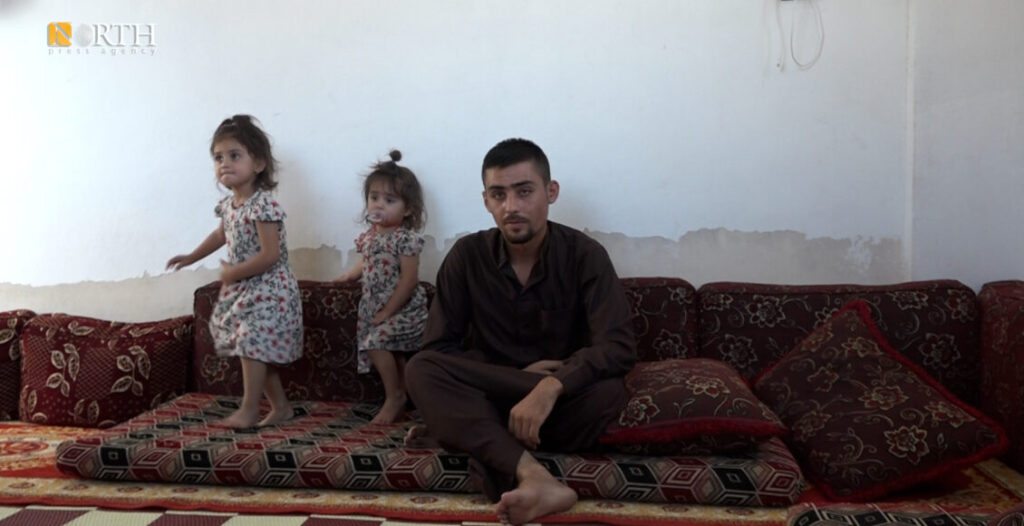Turkish drone strikes affect civilians in Syria’s Kobani
By Fattah Issa
KOBANI, Syria (North Press) – On June 12, Alaa Ibrahim, from the city of Kobani in northern Syria, had no idea that his routine journey to work would land him in a hospital, as he was injured in a Turkish drone strike .
A Turkish drone strike took place since three months ago, however, Ibrahim continues to face difficulties in returning to work. He suffers from a challenging psychological situation as he finds it hard to cope with his new disability.
On June 12, Kobani was hit by a Turkish drone, injuring three people severely, including the 23-year-old Ibrahim.
Ibrahim, a father of two children, works in an office for cranes on Aleppo road. While parking his car near his workplace, he was caught off guard by a shell that fell nearby.
The shell also injured two other individuals who were near him in an busy area on the Aleppo road in the city of Kobani.
After the shell fell, Ibrahim tried to get up to cross the road but he failed. The young man was unaware of the severity of his injuries until his brother found him. His brother carried him to al-Amal Hospital in Kobani.
Ibrahim was conscious but unaware of his injuries, and then he knew that shrapnel had reached his kidney and liver.

Suffering from shrapnel
Although doctors tried their best, they could not extract some of the shrapnel that deeply lodged in his body. Now, Ibrahim suffers from fractures in his arm due to the presence of shrapnel embedded in the bones. Unfortunately, the local hospitals do not have the necessary specialized equipment to extract them. The extraction requires specific devices that are only available in Damascus.
As for the other two individuals who were injured while doing their job, one was working in a car paint shop when a shrapnel injured his neck, leading to an artery severance and facial deformity. Both legs and one hand of the third person were amputated.
Ibrahim stated that the injury has impacted both his body and work. For the past three months, he has been unemployed and confined to his home. Sadly, he acknowledges that he is not the first nor the last victim of Turkish drone strikes, as many others have also been affected.
He added that when Turkey attacks their region, whether through artillery or drones, civilians bear the brunt of these attacks. Prior to his incident, three workers at the water company in the city were injured in mortar shells and drone strikes. Even before that, a four-year-old boy in the village of Qaramogh had his leg amputated.
The continuous Turkish airstrikes continue to pose a threat, putting more lives at risk similar to Ibrahim’s case. The relentless attacks, which have persisted for years, increase the likelihood of further casualties.
Impacts of Shelling
Beyond those who lose their lives in the airstrikes, there are also those affected by artillery or rockets, leading to permanent disabilities for the victims.
The presence of shrapnel in Ibrahim’s body hinders him from walking comfortably on his leg, and his arm movement does not improve. The second impact has been on his employment, as he has been jobless for three months.
The young man calls on the United Nations to stop the Turkish attacks on civilians and find a solution to prevent such bombardment. “I have been affected by the bombardment, and I do not want anyone else to suffer from it.”
Ibrahim adds that since 2019, their region has been bombed hundreds of times by artillery and drones, whether in the western or eastern countryside of Kobani, as well as within the city itself. This bombardment has greatly harmed civilians and damaged vital facilities in the region, such as schools and hospitals.
The continuous Turkish attacks on Kobani has created instability among the population, leading many to migrate. It has also contributed to internal displacement, affecting business owners, hindering economic projects in the region.

